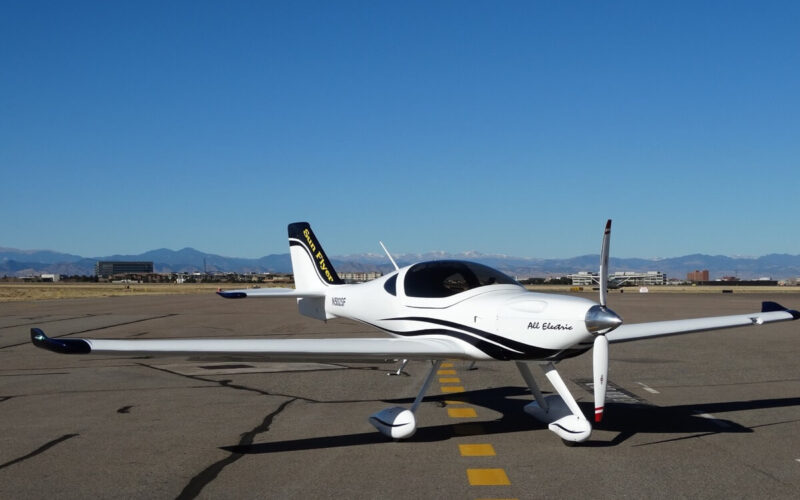The Norwegian group OSM Aviation announced on April 11, 2019, an order of 60 eFlyer 2 electric aircraft, manufactured by Bye Aerospace.
“This is the largest order for commercial electric planes to date,” said group CEO Espen Høiby in a statement, adding “it’s important that the airline industry steps up to the challenge of developing more environment-friendly transport”.
OSM Aviation is specialized in the employment, training, and administration of cabin crew and pilots worldwide. The electric trainers will be used by the OSM Aviation Academy flight training centers.
The eFlyer 2, formerly known as Sun Flyer 2, is a twin-seat electric plane manufactured by the U.S.-based company Bye Aerospace. It is powered by an 80-kilowatt electric motor and features lithium-ion batteries, much like electric cars. The motor weighs a mere 20 kilos, about 90 kilos less than the combustion engine powering the Cessna 172 currently used by OSM Aviation.
This transition to electric powered aircraft also allows for a reduction of operational costs. “It costs $110 per hour to operate a conventional trainer now. The electric planes will cost $20 per hour,” Høiby told Reuters.
The sport plane whose price is estimated to be around $350,000 is still being tested and has yet to be approved by regulators. “The first planes will be delivered by the end of 2021, making it a smooth transition into going all electric,” said Fredrik Strand Randgaard, Director of Sales at OSM Aviation, in an email to AeroTime.
This order will not only be a transition for OSM Aviation but also an expansion, as the fleet will be multiplied by three. The twenty planes currently used will be progressively phased out. The training company plans on conquering other markets, including the United States.
Scandinavian countries such as Norway and Sweden have been active in reducing the impact of aviation on the environment. In April 2018, Sweden introduced a new aviation tax on all flights departing from the country in order to lessen the impact air travel has on the environment.
Motivated by its success with green cars, encouraged by big tax breaks that made it the world leader on electric cars, Norway announced that it planned to buy electric passenger planes to reduce aviation’s impact on the environment.
While Norway is ambitious to use only electric planes for short-haul flights by 2040, Høiby predicts that it is only a matter of time before electrical planes enter international commercial travel. And much like Scandinavian governments, he thinks that the industry should be proactive in that transition.

